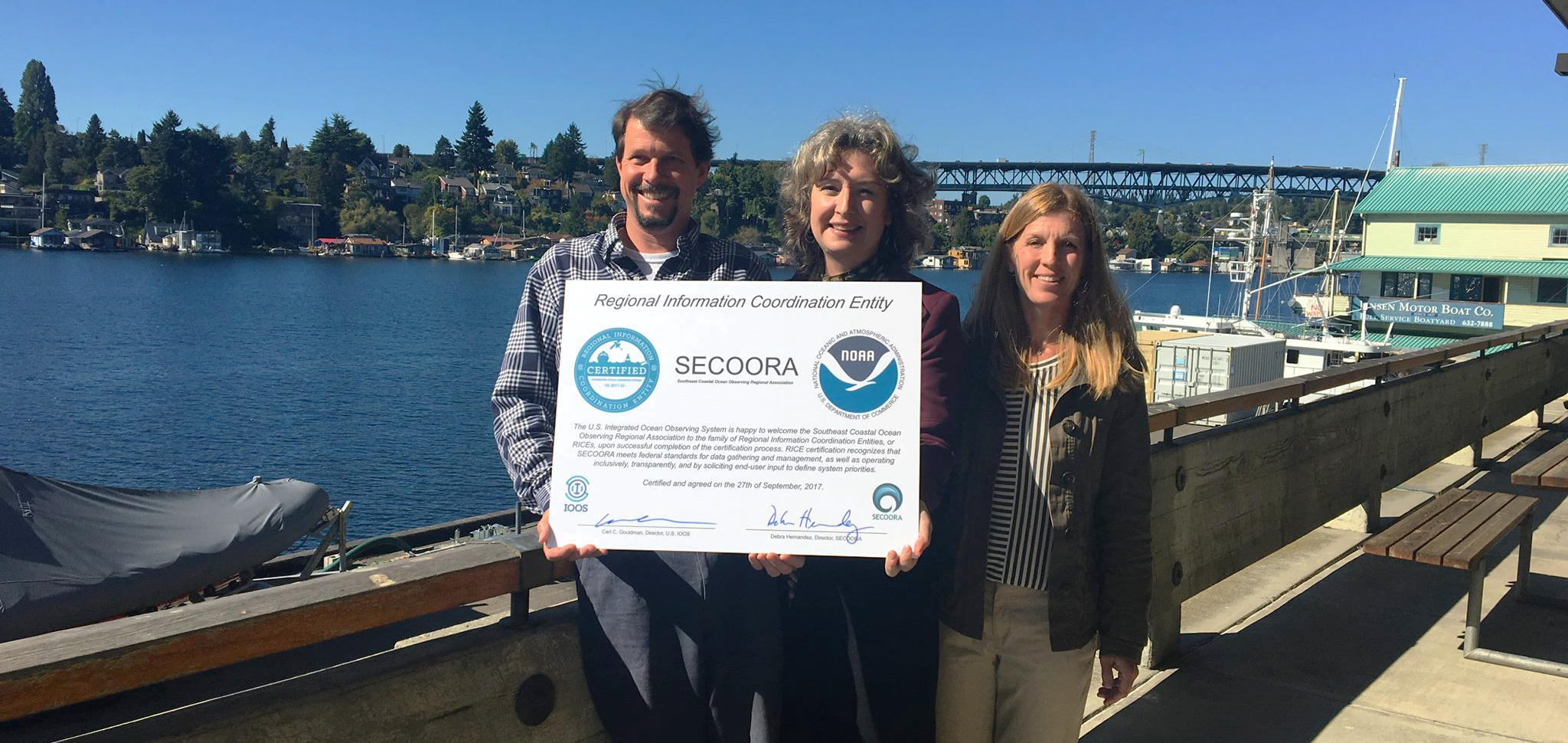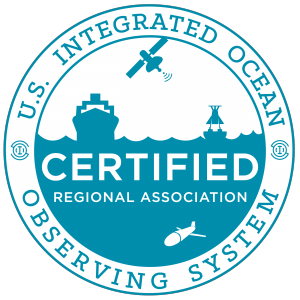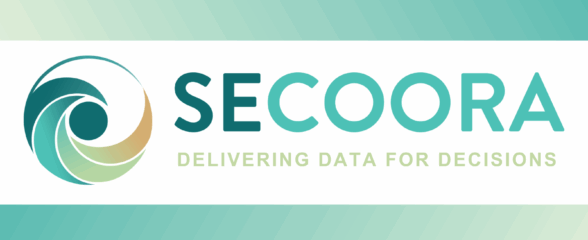
SECOORA is certified as a Regional Information Coordination Entity, or RICE.
RICE Certification recognizes that SECOORA meets NOAA federal standards for data gathering, management and long-term archiving, as well as operating inclusively, transparently, and by soliciting stakeholder feedback to ensure that we meet their priority needs related to coastal and ocean observing.
Why Data Standardization?
Numerous federal and non-federal agencies are gathering weather and oceanographic data every day. In order to maximize utility of the data, it is important to ensure data is reported in a standard format, or rather, that we are all speaking the same language.
This increases the ease and success of data integration and sharing to allow for the development of environmental products, services, and models.

RICE Certification and the Solution to Data Standardization
The Integrated Coastal and Ocean Observation System Act of 2009 recognized the importance of data standards. The act requires the NOAA led U.S. Integrated Ocean Observing System (IOOS®) to develop and implement the RICE process to ensure that IOOS® Regional Associations (RAs) are providing high-quality observations that meet rigorous federal standards for data management and governance.
After completing a thorough and extensive NOAA IOOS application process, ensuring all requirements for data collection, data quality control and assurance, and data archival are satisfied, SECOORA was certified as a Regional Information Coordinating Entity or a RICE earlier this year. SECOORA is covered by federal liability protection and our data can be used with the same quality assurance as federal data.
Below are five points* on why RICE Certification matters:
- Certification leverages local observing data alongside federal observing data to expand the pool of federal-quality data available nationwide.
- Certification means that this data is as reliable as the data you get from federal sources like NOAA.
- Certification requires that documentation of practices be published, enhancing data and information utility by allowing cross-checking and explaining procedures.
- Certification means that federal sources are able to use this data without spending time and resources on additional QC, and integrate it into their resources and products.
- Certification requires data archiving at a national center which facilitates long-term data research.
*From U.S. IOOS Website: https://ioos.noaa.gov/about/governance-and-management/certification-extending-reach-regional-data/
Next Steps
Certification opens doors for greater collaborations. SECOORA’s data management expertise and capacity provides a solid foundation to support member and stakeholder efforts – private, local, state or federal – to develop products and services for decision makers.
We can also help ensure your data meets federal data sharing and archiving requirements, enabling the broad impact from collected data.
Related news

SECOORA Funding Opportunity Announcement: Letters of Intent Solicitation
SECOORA will submit a coordinated regional proposal in response to the anticipated FY 2026 Implementation of the U.S. Integrated Ocean Observing System (IOOS) funding opportunity. Letters of Intent to be considered for inclusion in SECOORA’s full proposal are due September 9, 2025.

SECOORA Hosts the First Surface Elevation Table (SET) Community of Practice Virtual Workshop
The SECOORA SET Workshop was virtual on July 17, 2025. More than 50 Community of Practice members and stakeholders joined this collaborative workshop to discuss SET monitoring, coastal resilience, and data-driven decision making in the Southeast.

The Sounds of the Sound: Connecting the Port Royal Sound Community with What’s in the Water
Port Royal Sound in Beaufort, South Carolina is a thriving haven for animals, plants, and people. Research focused on listening to the animals that live in the Sound – specifically the resident dolphins – connects the community with the underwater world without having to go swimming.